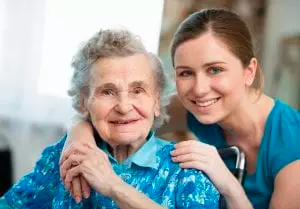If your loved one has been the victim of nursing home abuse, you may be unsure what to do. The good news is that, after you’ve contacted the proper authorities and removed your loved one from the abusive situation, there are many methods for how to deal with nursing home abuse after the fact, depending on your needs and those of your loved one.
The following coping options can help you deal with the aftermath of discovering nursing home abuse. Keep reading to see what steps you can take and what you need to consider.
Understand Personal Coping Mechanisms
No two people cope with abuse in exactly the same way. Do not expect that your loved one who was abused at the nursing home will cope in exactly the way you do. Be cautious regarding your loved one’s timeline, and avoid forcing him or her to pursue options they are not comfortable with. Some nursing home abuse victims simply need more time to deal with the issue.
Additionally, keep in mind that many seniors will not want to enter another nursing home immediately after they suffer from abuse. He or she may also not feel comfortable enough to stay in the same home in which they were abused, even if those involved were fired. You may need to discuss options with your loved one and consider your financial situation to see what else you can do to see to your loved one’s care, such as hire an in-home nurse.
Consider Physical Recovery
Sometimes, personal recovery after nursing home abuse includes physical recovery with the help of a medical professional. A senior who has been severely injured may need time for injuries to heal, so you should arrange for some time to rest for your loved one in the meantime.
Next, consider the role of long-term physical therapy for your loved one. A victim of nursing home abuse may benefit from regular sessions in which they regain some of their strength and stamina. For example, physical abuse in a nursing home may lead to broken bones, or neglect may have caused overall health to decline. Seniors may need more time to recover from such difficulties than younger people would.
Consider Emotional Recovery
Trauma is common after nursing home abuse, and family members and friends of a nursing home abuse victim should look for symptoms of post-traumatic stress disorder. Symptoms include emotional and physical withdrawal, loss of interest in daily activities, fear, anxiety, aggression, intense anger, loss of appetite, and changes in sleep patterns.
Emotional recovery often involves one-on-one therapy with a professional therapist, but it may also include group therapy or family therapy. Family members benefit from working with therapists to learn how to best support the victims of abuse.
When you do look for a therapist, look for one who has special skills in helping individuals who are elderly or those who need assistance dealing with traumatic events.
Pursue a Civil Lawsuit
Another way abuse victims can hasten recovery after the abuse occurs is to pursue a civil lawsuit against any individuals who perpetrated abuse or a company that failed to look into abuse allegations. Abuse victims may recover the costs associated with medical bills, disability, emotional pain and suffering, and therefore avoid significant financial burdens.
Smith Jordan, P.A. Attorneys at Law, understands that nursing home abuse can devastate individuals and families. For this reason, we are ready to help you through the process of filing a claim and dealing with the aftermath. Rely on us to take care of the legal side of things for you. Call us today to get started.

